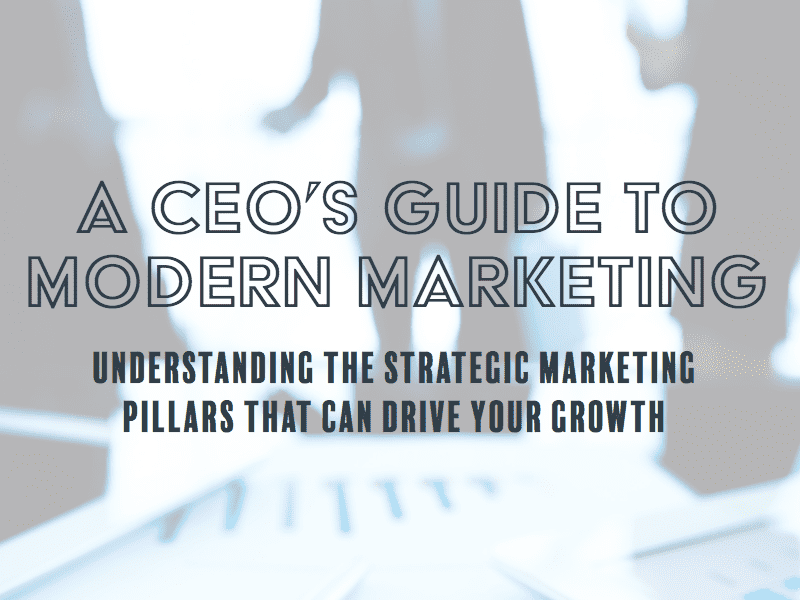5 Strategies for Marketing Engineering Services (That Actually Work!)
Marketing engineering services isn’t for the novice.
A consolidating market leaves you bidding against bigger competitors with bigger budgets. When other firms engage in look-alike positioning, buyers view your service as a commodity and expect you to compete on price. And if you rely on a single marketing manager generalist, you end up doing marketing things that don’t generate marketing results.
How does an engineering firm overcome these obstacles and engage in marketing that drives measurable growth? Marketri posed that question to two experts who come at it from very different angles.

Joe Viscuso, VP and director of strategic growth at Pennoni Engineering
He’s akin to a Chief Marketing Officer, charged with leading the marketing for a large multi-disciplinary engineering firm, so he knows a thing or two about what works and what doesn’t.

Tim Brasel, director at Chesapeake Corporate Advisors
He’s an investment banker who helps owners of engineering firms (and other companies) position themselves to sell the business. That means building the company’s value, which demands effective marketing.
Based on insights provided by Joe and Tim, combined with Marketri’s deep experience delivering great results for our engineering firm clients, we’ve outlined 5 proven strategies for marketing engineering services.
1. Zero in with Account-Based Marketing
When you target a niche audience, like many engineering firms do, account-based marketing (ABM) can generate leads from your ideal buyers.
At Pennoni, Joe and his team use ABM to home in on target accounts, using e-mail and social media marketing that demonstrates authority and thought leadership. (See tip #5!) Their focus on the higher education market is a prime example.
“We have a good stable of higher ed clients, but we’re looking to add more,” Joe shares. “So, we use ABM to target specific higher ed organizations within our east coast geography predominantly.”
ABM works best when it’s grounded in a strategic marketing plan and when it aligns sales and marketing to work together to identify and engage with target accounts.
2. Put the Power of Data to Work
If you don’t measure your marketing, how do you know if it’s working—or what to tweak to get even better results? Sounds simple enough, but many engineering firms don’t use data to measure and optimize marketing.
“We have all this data, but how do we analyze it better and make better use of it?” Joe asks. “For example, last year we wrote thousands of proposals, but are we using the data to see how we could be more successful with our win rate?” As he points out, data analytics is a specialized discipline that’s outside the expertise of a marketing generalist.
For owners preparing to sell their firms in a few years, robust marketing data is a must if you expect buyers to pay a premium for the business. “The more data you have, the more helpful it is,” Tim says. “Do you see a higher open rate from emails to certain types of clients? What percentage of RFPs are you winning? You need to be disciplined and intentional with the data you gather and analyze, because a buyer doesn’t want anecdotal evidence.”
3. Optimize Your Budget with Fractional Marketing
At many engineering firms, the marketing department consists of one person who acts as a jack-of-all-trades—developing sales enablement tools, helping with RFPs, and trying to tackle lead generation.
Given the complexity of today’s B2B buying journey, that approach doesn’t work anymore. But most engineering firms can’t afford to build a big, expensive in-house marketing team.
For middle market engineering firms, fractional marketing is often the way to go.
Growth-minded engineering firms recognize that marketing is a discipline of specialties working together to generate the best results. A fractional marketing approach enables you to tap precisely the skills and resources you need at the level you need them—no more, no less. Rather than tie up most of your marketing budget on salaries, fractional marketing leaves more money for execution that generates leads and drives revenue.
4. Rethink How and Why You Network
At many engineering firms, networking IS marketing. While networking shouldn’t be your sole focus, it can pay big dividends when done right. The key is how you approach it.
Pennoni uses networking to connect with other engineering firms they can form mutually beneficial partnerships with. “They might lack specialties we have or vice versa,” Joe explains, “or a firm might not have the local market knowledge we do.” Approached this way, networking can open doors to new business.
Joe also sees networking as a way to humanize the engineering industry. “Clients and prospects expect us to be thought leaders and provide a product that’s 100 percent accurate, but they want to connect with people, too,” he says. “When we take them to a baseball game, it humanizes a business that can be viewed as boring and analytical.”
When it comes to building the firm’s value for an eventual sale, Tim says the most successful use networking intentionally to go deeper within a client organization and find the talent it takes to fulfill new business.
“Networking can drive awareness and build relationships that go deeper than one or two key people,” he explains. “If the relationship doesn’t go beyond your CEO knowing the client’s head of engineering, a buyer will see that as a limitation.” It also hinders your marketing when you’re too dependent on a few rainmakers who inevitably retire at some point.
Tim agrees that networking must be part of a larger marketing plan. “We don’t see many engineering firms doing effective social and digital marketing – they tend to focus on building a strong culture, doing good work, and giving back to the community,” he notes.
Good marketing also is integral to recruiting and retaining talent, especially given unprecedented labor shortages. “Engineers want to work on exciting projects, so your marketing should showcase your culture and the kind of work you do,” Tim says. “That’s important at all levels—even with hiring interns, which is a very capital-efficient way to build your bench.”
5. Establish Your Authority as a Thought Leader.
Clients expect engineers to be experts in their fields, able to speak from a position of authority within their areas of specialty and serve as trusted advisors. Your firm may have those capabilities– but does your marketing reflect that?
The most successful engineering marketers use thought leadership to position the firm against a sea of competitors that can all start to look alike. By demonstrating your thought leadership through blogs, e-books, guides, and other marketing vehicles, you can differentiate your firm, generate more leads, and win more business from clients that are willing to pay a premium for higher-quality service.
If your engineering firm is serious about growth, you need to engage in modern marketing that generates leads that turn into closed deals. With nearly two decades of experience doing just that for engineering firms, Marketri is the right choice to lead your modern marketing!
Marketri differentiates your engineering firm and helps you win in your target markets with thoughtful positioning and innovative marketing strategies that deliver results. We understand your business, how to market to your audiences, and how to turn your marketing into a profit center.





